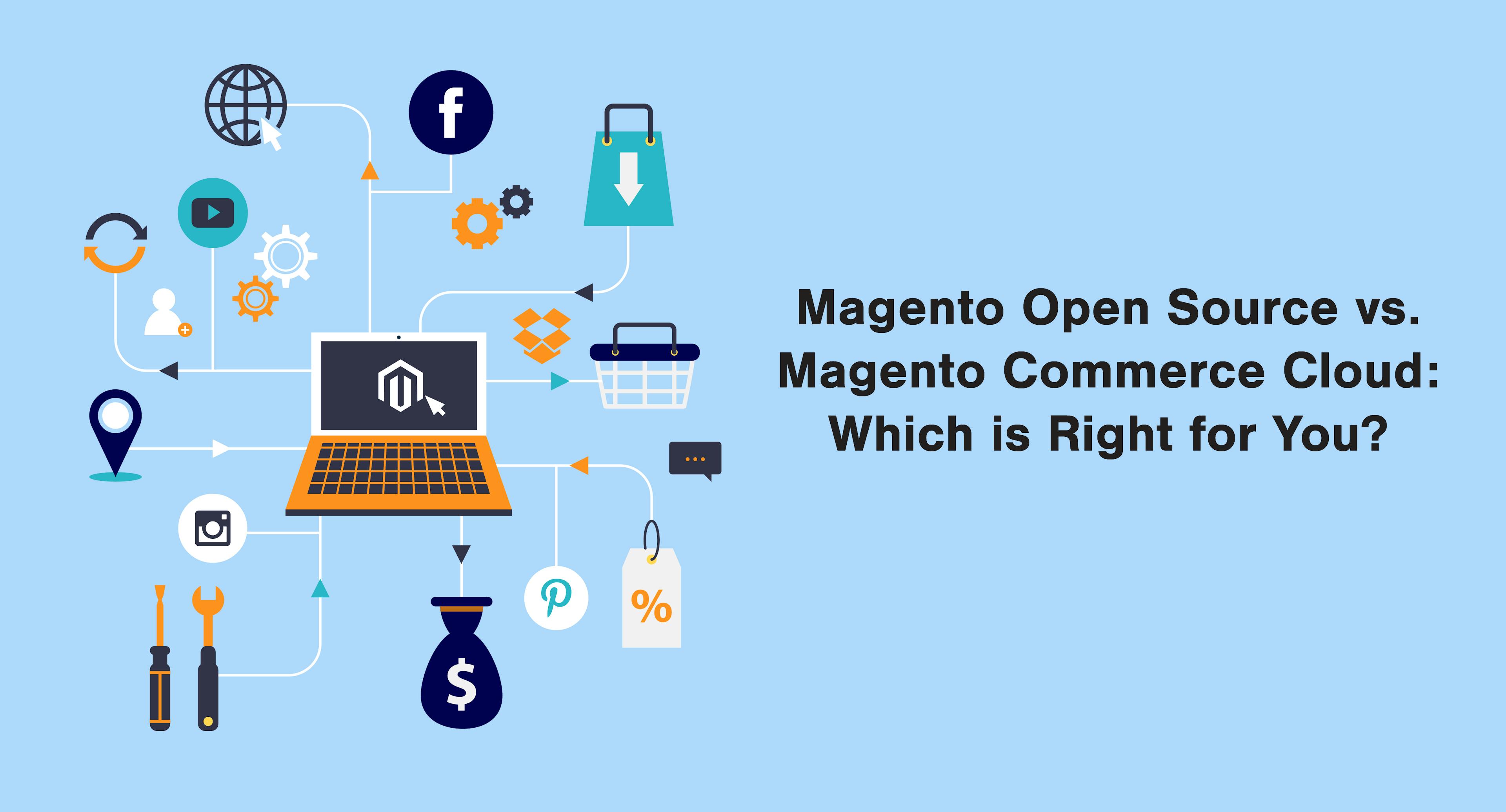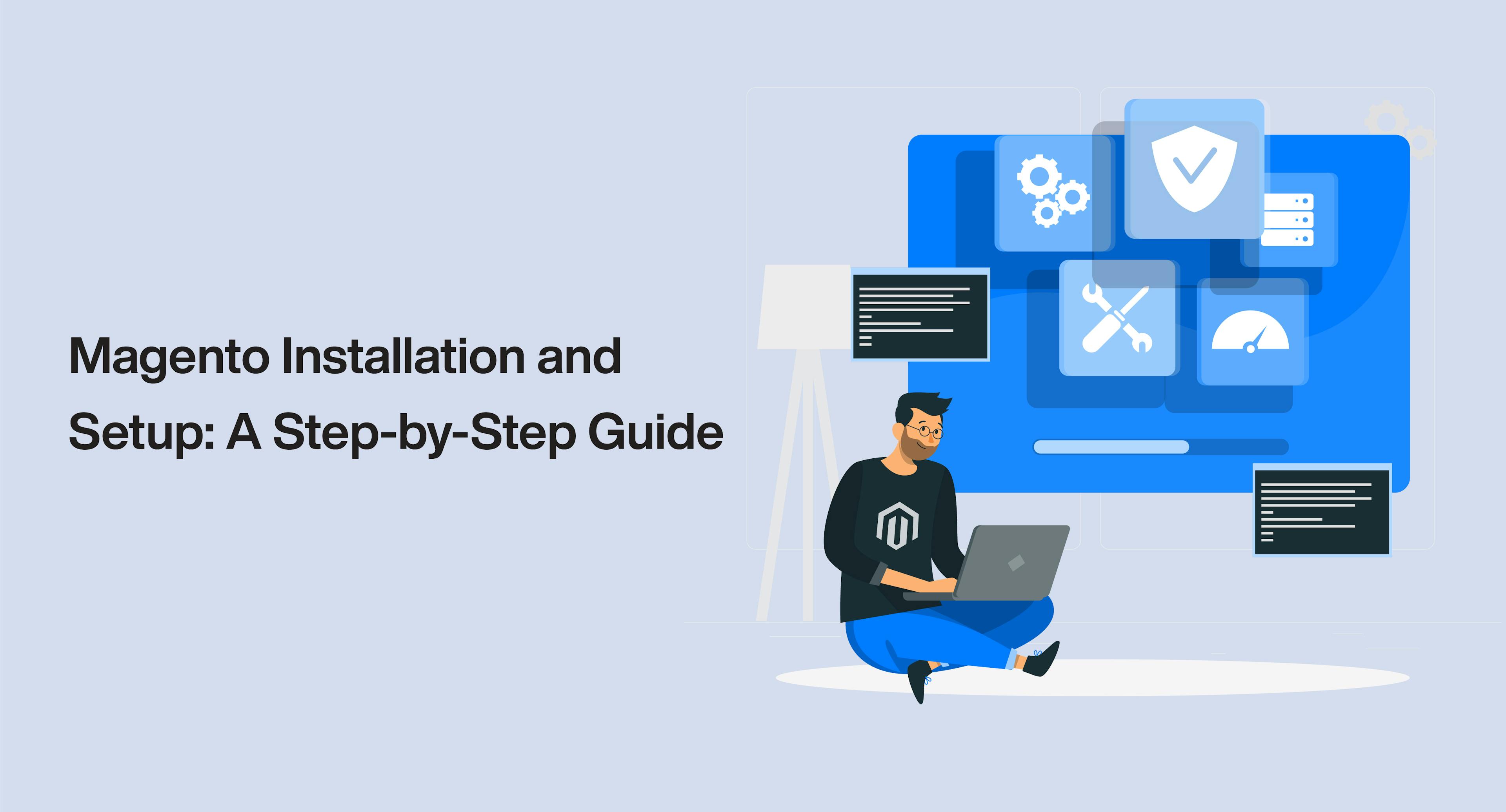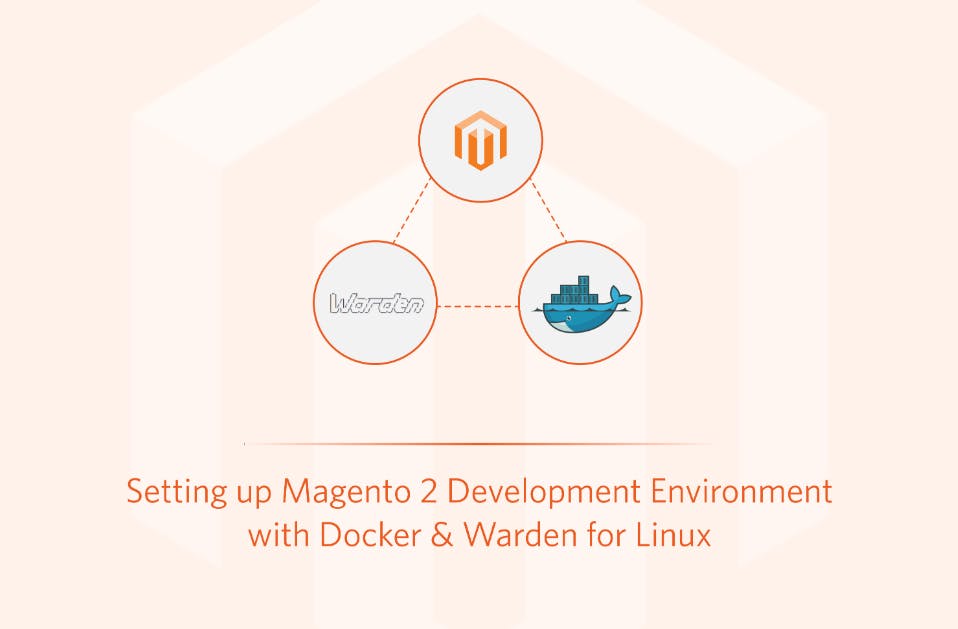When it comes to choosing an eCommerce platform, Magento stands out as a leading solution for businesses of all sizes. However, deciding between Magento Open Source and Magento Commerce Cloud can be challenging.
Magento Open Source vs. Magento Commerce Cloud: Which is Right for You?
 Aug 5, 2024
Aug 5, 2024 4 min read
4 min read
When it comes to choosing an eCommerce platform, Magento stands out as a leading solution for businesses of all sizes. However, deciding between Magento Open Source and Magento Commerce Cloud can be challenging. Both offer unique benefits and features, tailored to different business needs and scales. In this blog post, we will delve into the key differences between these two options to help you make an informed decision.
Understanding Magento Open Source
Magento Open Source, formerly known as Magento Community Edition, is a free version of the Magento platform. It offers a robust set of features suitable for small to medium-sized businesses looking to build and manage their online stores.
Key Features of Magento Open Source
- Cost-Effective: As a free platform, Magento Open Source allows businesses to minimize initial investment, focusing their budget on customization and marketing.
- Customizability: With access to the source code, developers can tailor the platform to meet specific business needs, ensuring a unique shopping experience.
- Community Support: A vast community of developers and users contributes to an extensive library of extensions and plugins, enhancing functionality and performance.
- Scalability: While primarily suited for smaller businesses, Magento Open Source can handle increased traffic and product catalogs with the right optimizations.
Understanding Magento Commerce Cloud
Magento Commerce Cloud, previously known as Magento Enterprise Cloud Edition, is a premium, fully-managed cloud version of the Magento platform. It caters to larger businesses that require advanced features, enhanced security, and dedicated support.
Key Features of Magento Commerce Cloud
- Advanced Functionality: Magento Commerce Cloud offers out-of-the-box features like customer segmentation, advanced marketing tools, and comprehensive analytics.
- Cloud Hosting: The platform includes managed cloud hosting on AWS, ensuring high performance, scalability, and security without the need for third-party hosting services.
- 24/7 Support: Dedicated technical support is available around the clock, providing businesses with peace of mind and rapid resolution of any issues.
- Enhanced Security: With built-in security features and regular updates, Magento Commerce Cloud ensures robust protection against cyber threats.
Comparing Magento Open Source and Magento Commerce Cloud
Cost
- Magento Open Source: Free to use, but requires investment in hosting, security, and maintenance. Customization and extensions may incur additional costs.
- Magento Commerce Cloud: Subscription-based pricing, which includes cloud hosting, security, and support. Higher initial cost but fewer ongoing expenses
Customization and Flexibility
- Magento Open Source: Offers complete control over customization, allowing businesses to modify and extend the platform as needed.
- Magento Commerce Cloud: Provides significant customization options but within the confines of the cloud environment. Managed services limit some customizability in exchange for convenience and security.
Performance and Scalability
- Magento Open Source: Performance depends on the chosen hosting environment and optimizations. Can handle scalability with proper management.
- Magento Commerce Cloud: Optimized for performance and scalability, with auto-scaling capabilities and managed cloud services ensuring consistent performance.
Security and Support
- Magento Open Source: Security and support depend on the business’s ability to implement and maintain necessary measures. Community support is available but may not be as reliable as dedicated services.
- Magento Commerce Cloud: Offers robust security features and 24/7 dedicated support, ensuring a secure and stable environment.
Which is Right for You?
The choice between Magento Open Source and Magento Commerce Cloud ultimately depends on your business needs, budget, and resources. Here are some considerations to help you decide:
Choose Magento Open Source if:
- Budget Constraints: You have a limited budget and can invest in hosting, security, and maintenance separately.
- Development Resources: You have access to a skilled development team capable of customizing and managing the platform.
- Flexibility Needs: You require extensive customization to tailor the platform precisely to your business model.
Choose Magento Commerce Cloud if:
- Advanced Requirements: Your business needs advanced features like customer segmentation, advanced analytics, and marketing tools.
- Scalability: You anticipate significant growth and need a platform that can scale seamlessly without performance issues.
- Dedicated Support: You prefer having 24/7 support and managed services to handle hosting, security, and maintenance.
- Security Concerns: You require robust, enterprise-grade security measures to protect your business and customer data.
Conclusion
Choosing between Magento Open Source and Magento Commerce Cloud is a critical decision that can significantly impact your eCommerce success. Evaluate your business needs, budget, and resources carefully to make the best choice. Magento Open Source offers unparalleled flexibility and cost-effectiveness for smaller businesses with development resources, while Magento Commerce Cloud provides advanced features, managed services, and robust security for larger enterprises. Both platforms have their unique strengths, and selecting the right one will set the foundation for your online store's growth and success.
By understanding the key differences and evaluating your specific requirements, you can confidently decide which Magento platform is right for you, ensuring a thriving and scalable eCommerce business.
More blogs from Ganga Prakash
Subscribe to our Blog
Stay up to date on the latest trends, emerging tech, launches and much more










































